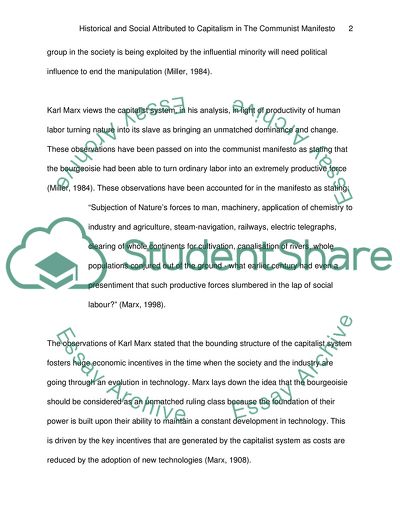Cite this document
(Historical and Social Attributed to Capitalism in the Communist Term Paper, n.d.)
Historical and Social Attributed to Capitalism in the Communist Term Paper. Retrieved from https://studentshare.org/philosophy/1712231-what-historical-and-social-role-does-karl-marx-attribute-to-capitalism-in-the-communist-manifesto
Historical and Social Attributed to Capitalism in the Communist Term Paper. Retrieved from https://studentshare.org/philosophy/1712231-what-historical-and-social-role-does-karl-marx-attribute-to-capitalism-in-the-communist-manifesto
(Historical and Social Attributed to Capitalism in the Communist Term Paper)
Historical and Social Attributed to Capitalism in the Communist Term Paper. https://studentshare.org/philosophy/1712231-what-historical-and-social-role-does-karl-marx-attribute-to-capitalism-in-the-communist-manifesto.
Historical and Social Attributed to Capitalism in the Communist Term Paper. https://studentshare.org/philosophy/1712231-what-historical-and-social-role-does-karl-marx-attribute-to-capitalism-in-the-communist-manifesto.
“Historical and Social Attributed to Capitalism in the Communist Term Paper”, n.d. https://studentshare.org/philosophy/1712231-what-historical-and-social-role-does-karl-marx-attribute-to-capitalism-in-the-communist-manifesto.


